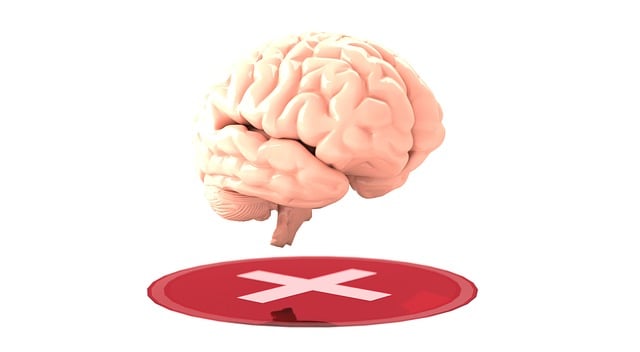Mental health professionals face significant risks in treating adults with bariatric evaluations, including legal threats and burnout. Effective risk management involves stringent client assessment, adherence to ethical guidelines, and confidentiality maintenance. A holistic approach integrates burnout prevention strategies like self-care practices and Trauma Support Services, along with specialized training in social skills and cultural competency. This strategic method fosters a supportive environment, enhances therapy outcomes, and aligns with broader Mental Health Policy initiatives, ensuring safety and integrity for both practitioners and clients.
“In the complex landscape of mental health practice, effective risk management planning is paramount. This article guides professionals through a crucial process, beginning with understanding risk in therapy settings and identifying hazards specific to adult care, such as those encountered during bariatric evaluations. We explore practical strategies for mitigation, enhanced by real-world case studies. By implementing these measures, mental health practitioners can ensure safer, more effective treatment while navigating intricate patient scenarios.”
- Understanding Risk in Mental Health Practice
- Identifying Potential Hazards for Adult Therapy
- Implementing Effective Risk Management Strategies
- Case Studies: Bariatric Evaluations as a Complex Scenario
Understanding Risk in Mental Health Practice

Mental health professionals constantly navigate a complex landscape of risks that can impact both their practice and clients’ well-being. Understanding risk in this context involves recognizing various factors that could potentially harm or hinder effective therapy for adults, including those seeking bariatric evaluations. This includes not only external threats like legal liability but also internal challenges such as burnout, which can significantly affect a professional’s ability to provide quality care.
Effective risk management planning requires a nuanced approach, considering the unique demands of mental health practice. For instance, professionals must be vigilant in assessing clients’ suitability for treatments, ensuring ethical guidelines are followed, and maintaining confidentiality. Additionally, integrating strategies for burnout prevention, such as regular self-care practices and Trauma Support Services, is vital to mitigate risks associated with prolonged stress and emotional exhaustion. This holistic approach aligns with the broader Mental Health Policy Analysis and Advocacy efforts aimed at creating supportive environments for both practitioners and their clients.
Identifying Potential Hazards for Adult Therapy

Mental health professionals must be vigilant in identifying potential hazards that could impact their adult therapy sessions. Risks can arise from various factors, including the client’s personal history, current circumstances, and the nature of the therapy itself. For instance, individuals undergoing bariatric evaluations may face emotional challenges related to body image issues or eating disorders, requiring specialized care and monitoring. These clients might need support for anxiety relief and positive thinking while navigating significant lifestyle changes.
Social skills training can be a valuable tool in addressing potential hazards, as it equips both the therapist and client with effective coping mechanisms. By recognizing early signs of distress or potential triggers, therapists can adapt their approach to provide more tailored and supportive care. This proactive risk management is essential in fostering a safe therapeutic environment conducive to recovery and personal growth.
Implementing Effective Risk Management Strategies

Implementing effective risk management strategies is paramount for mental health professionals to ensure safe and ethical practices in their therapeutic journeys. These strategies extend beyond traditional case assessments to encompass a holistic approach that addresses various risks unique to different client populations, such as individuals seeking therapy for adults with bariatric evaluations. Mental health practitioners must be adept at identifying potential hazards, including those related to clients’ physical health, cultural backgrounds, and social skills.
For instance, incorporating Social Skills Training and Mindfulness Meditation into treatment plans can mitigate risks associated with social anxiety and emotional regulation. Furthermore, Healthcare Provider Cultural Competency Training equips professionals with the knowledge to navigate cultural nuances, thereby reducing risks arising from miscommunication or insensitive approaches. By integrating such training and techniques, mental health experts create a secure environment fostering client trust and promoting positive outcomes in therapy sessions.
Case Studies: Bariatric Evaluations as a Complex Scenario

In the realm of mental health professionals, handling complex scenarios like bariatric evaluations requires meticulous risk management planning. These assessments involve multifaceted considerations, from understanding the patient’s psychological impact of significant weight loss to implementing effective therapy for adults with underlying mental health conditions. For instance, a case study may highlight an individual who undergoes bariatric surgery, necessitating specialized care to manage both the physical and emotional transformations.
Effective risk management involves integrating strategies such as stress management and self-care routine development for better mental health. Mental health professionals must be adept at mood management techniques to navigate potential challenges. By leveraging case studies like these, practitioners can enhance their approach to bariatric evaluations, ensuring holistic care that addresses both physical and psychological aspects of weight-related transformations in adults.
Mental health professionals must navigate complex risks daily, from client confidentiality to ethical dilemmas. Effective risk management planning, as explored in this article, including identifying potential hazards in adult therapy and implementing robust strategies, is crucial to mitigate these risks. The case study on bariatric evaluations highlights the necessity of thorough assessment and tailored risk mitigation approaches. By integrating these practices, professionals can ensure safer, more secure environments for both clients and practitioners, fostering successful therapy outcomes for adults seeking mental health support, such as those in bariatric evaluations.










